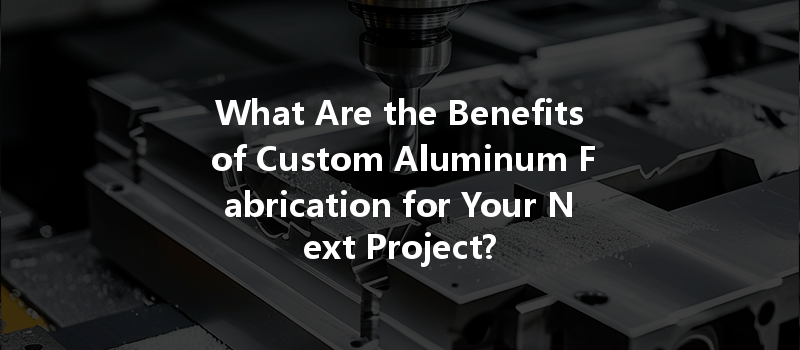Hey there, fellow makers and innovators! Have you ever marveled at the sturdy yet lightweight nature of aluminum? Or found yourself in awe of the intricate designs possible with custom aluminum fabrication? If so, you’re in for a treat! In this article, we’ll embark on an exciting journey through the realm of custom aluminum fabrication. We’ll explore everything from techniques and benefits to applications and trends. Let’s roll up our sleeves and dive right in!
What is Custom Aluminum Fabrication?
At its core, custom aluminum fabrication is the art and science of shaping aluminum into specific designs that meet the needs of various industries. Picture a sculptor gently chiseling a block of marble—only in this case, our medium is aluminum, and instead of a chisel, we’re using advanced machining tools to create functional pieces tailored to precision and quality.
Aluminum is an ideal material for fabrication, primarily due to its lightweight, malleable, and corrosion-resistant properties. The ability to mold it into various shapes makes it a preferred choice across sectors from aerospace to automotive, not to mention construction and consumer goods.
But what does “custom” really mean in this context? Unlike standard production methods that churn out generic parts, custom fabrication is all about creating nuanced designs. Whether you need a unique component for a prototype or a bulk order of specialized parts, custom fabricators work hand-in-hand with clients to ensure both utility and style.
The Importance of Custom Aluminum Fabrication
You might wonder, why go through the process of custom fabrication when off-the-shelf components are available? Well, think of it like ordering a tailored suit versus buying one off the rack. While the latter option can be convenient, a tailored suit fits you perfectly and showcases your unique style. This is precisely the case with custom aluminum fabrication—it allows for solutions that enhance performance, aesthetics, and overall product life.
Common Techniques in Custom Aluminum Fabrication
As we delve deeper into the fascinating world of aluminum fabrication, let’s take a moment to familiarize ourselves with some common techniques employed by industry professionals.
CNC machining is akin to the Swiss Army knife of fabrication techniques. It utilizes computer-controlled machines to carve and shape aluminum components into intricate forms. The precision here is so exquisite that it’s like a surgeon working with a scalpel.
Imagine melding together different pieces of metal into one unbreakable bond—that’s welding for you! In custom aluminum fabrication, welding isn’t just about joining materials; it’s about creating strong and enduring structures.
Think of aluminum sheets like a blank canvas for artists. These sheets can be cut, folded, and formed into practically anything—from enclosures to intricate covers—just waiting for the right vision to come to life.
Aluminum extrusion is a great way to create custom shapes by forcing aluminum through a die. The result? Uniform profiles that are not only functional but can also be visually striking. If molding metal were an Olympic sport, extrusion would take home the gold!
Applications of Custom Aluminum Fabrication
By now, you might be wondering where you might come across custom aluminum fabrication in everyday life. Spoiler alert: it’s everywhere! Let’s explore some of the most common applications:

Key Benefits of Investing in Custom Aluminum Fabrication
Now that we’ve explored what custom aluminum fabrication entails and where we see it, it’s time to highlight the numerous benefits you stand to gain from investing in these services:
Trends in Custom Aluminum Fabrication
Just like fashion, the world of custom aluminum fabrication is continuously evolving. Staying updated with emerging trends can give you insights into how to stay competitive. Here are a few noteworthy trends to keep an eye on:
Selecting the Right Custom Aluminum Fabrication Partner
When it comes to custom aluminum fabrication, choosing the right partner can make a significant difference. After all, the success of your project often hinges on the expertise of the fabricator you select. Here are some tips to help you make an informed choice:
Conclusion: Embracing the Future of Custom Aluminum Fabrication
As we wrap up our deep dive into the captivating world of custom aluminum fabrication, it’s important to recognize the potential it holds for innovation, creativity, and efficiency. With advancements in technology and growing awareness of sustainable practices, the future of aluminum fabrication is looking more promising than ever.
So, whether you’re an entrepreneur seeking the perfect components for your next big idea, an engineer looking to optimize processes, or simply a curious soul fascinated by technological innovations, I hope this comprehensive guide has equipped you with the knowledge and inspiration needed to explore the world of custom aluminum fabrication.
Now it’s your turn! Have any questions or insights about custom aluminum fabrication? Share your thoughts in the comments below. Let’s keep the conversation going and unleash our collective creativity. Happy fabricating!



